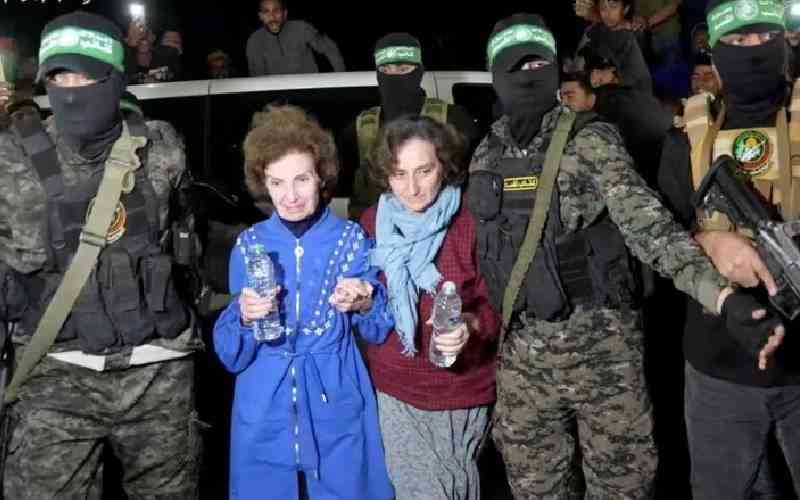×
The Standard e-Paper
Smart Minds Choose Us

Hamas militants freed more Israeli hostages Wednesday, the sixth day of a truce between the warring parties, while negotiators worked to extend the pause in fighting and free even more hostages in exchange for Palestinians held in Israeli jails.
With the cease-fire set to formally end Thursday morning, top officials from Qatar, the United States, Egypt and Israel were meeting in Qatar to discuss how, and for how long, to extend the halt in fighting to allow further swaps of hostages and prisoners.